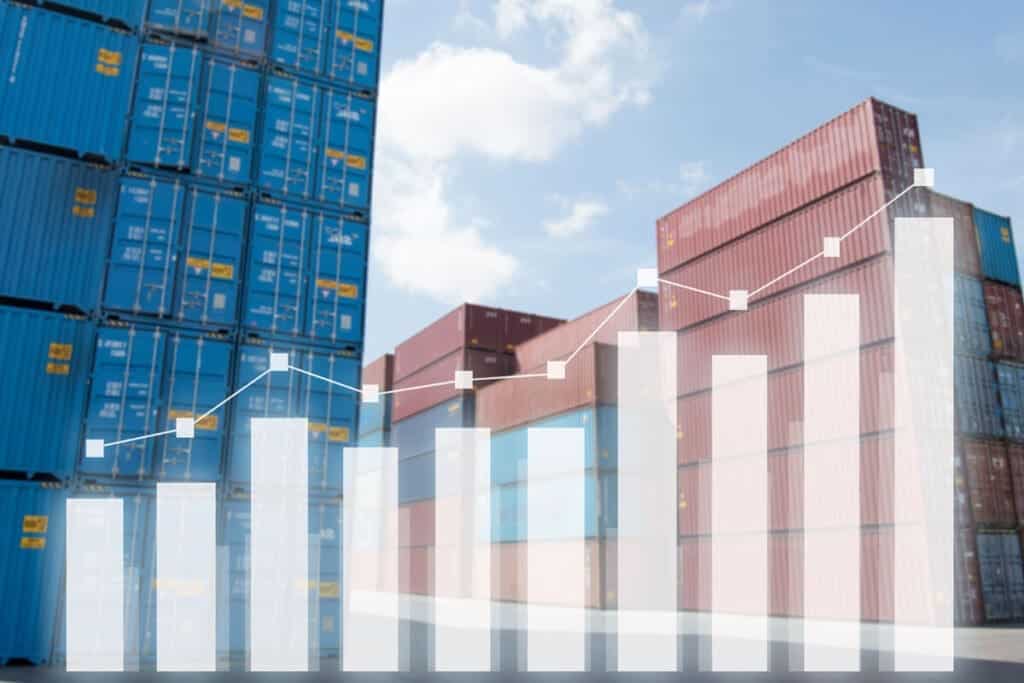Working in the supply chain can be highly complex as many different parts and pieces must be together for the supply chain to work efficiently. Three main key flows should be considered in supply chain management.
The three critical flows in supply chain management are material or product, information flow, and financial flow. All of these flows in the supply chain are essential, and they help to ensure the smooth running and operation of the supply chain.
Table of Contents
- Comprehensive Analysis Of Three Key Flows In Supply Chain Management
- The Triad Of Success In Supply Chain Management
- Heart Of Every Business Is A Well-Oiled Supply Chain Management
- Frequently Asked Questions
- Related Content
Comprehensive Analysis Of Three Key Flows In Supply Chain Management
In the vast business management arena, one field that stands as a backbone of every enterprise is Supply Chain Management (SCM).
The significance of an efficient supply chain is evident in every industry, from tech firms to supermarkets. It ensures a seamless flow of goods, information, and finances, making business operations efficient and competitive.
We will examine the three critical flows in Supply Chain Management: Material/Product, Information, and Financial. We will dissect each flow to appreciate its role and importance in a supply chain and, by extension, a business’s success.
The Material Or Product Flow And The Supply Chain
A key aspect of supply chain management is the material or product flow, which refers to the physical movement of goods from the point of origin (supplier) to the point of consumption (customer). This flow is typically unidirectional – moving from the supplier to the customer – though some supply chains may also feature reverse logistics, such as returns or recycling.

In essence, the product flow comprises acquiring raw materials, production, storage in warehouses, distribution across facilities, and delivery to the customer. The efficiency of this flow determines the timeliness and accuracy of product deliveries, directly affecting customer satisfaction and business performance.
An optimized product flow leads to minimized storage costs, reduced lead times, and increased turnaround, all critical for maintaining competitive advantage. Advanced tools and technologies like Artificial Intelligence (AI) and Blockchain are increasingly used to enhance product flow visibility, accuracy, and speed.
The Information Flow And The Supply Chain
The flow of information in a supply chain is as crucial as the physical movement of goods, if not more.
The information flow is bi-directional, moving from suppliers to customers and then back again. It encompasses all data exchanges, including order transmission, delivery status updates, and real-time tracking.

The information flow creates visibility and coordination across the supply chain. It allows businesses to forecast demand accurately, plan inventory efficiently, and respond quickly to any changes or disruptions in the supply chain. In today’s digital era, the importance of a robust information flow cannot be overstated.
Cloud computing, the Internet of Things (IoT), and data analytics revolutionize this flow, creating connected, transparent, and agile supply chains.
However, it’s also essential to secure this flow due to the sensitive nature of the information involved. Cybersecurity measures like encryption and multi-factor authentication should be in place to protect against data breaches and cyber threats.
The Financial Flow And The Supply Chain
The final piece in the Supply Chain Management puzzle is the financial flow. This involves moving money from the customer to the supplier after product delivery and verification. Financial flow can also move from the supplier to the customer, as in the case of credits or rebates.

This flow ensures the economic sustainability of the entire supply chain. It involves transactions, credit terms, payment schedules, consignment, and title ownership arrangements.
An efficient financial flow is crucial for maintaining cash liquidity, which, in turn, affects the ability to source materials, produce goods, pay employees, and invest in growth and innovation.
However, managing financial flow can be complex due to global operations, fluctuating exchange rates, and varying tax laws. Thus, businesses increasingly adopt financial technologies and risk management strategies to streamline this flow and mitigate potential financial risks.
The Triad Of Success In Supply Chain Management
The material or product information and financial flow are the triumvirate pillars of any effective supply chain. They intertwine and interact, creating a dynamic ecosystem where goods, information, and money move efficiently to meet customer needs and drive business success.
The world of supply chain management is rapidly evolving, with technological advancements and innovative practices challenging traditional methods. These advancements can potentially revolutionize the three flows discussed here, pushing the boundaries of efficiency, speed, and transparency.
AI, Technology, And The Supply Chain Management
We predict that AI or Artificial Intelligence will significantly enhance all these supply chain flows. It will ensure increased efficiency and effectiveness for all parts of the supply chain.
In the material or product flow, we’re already seeing the emergence of intelligent logistics, leveraging AI, IoT, and robotics to automate and optimize the transportation and storage of goods. Drones and autonomous vehicles promise to revolutionize delivery, while IoT devices enable real-time tracking and monitoring of products.
In the information flow, the potential of blockchain technology is being explored to create a secure, decentralized, and transparent method of recording and verifying transactions. Advanced analytics and AI-driven prediction models can enhance demand forecasting, risk management, and decision-making.
For the financial flow, the rise of technologies has brought new ways of managing money across the supply chain. Smart contracts, powered by blockchain technology, could automate payments based on predefined rules, reducing the need for manual intervention and potential human errors.
As businesses grappled with increasingly complex supply chains and heightened customer expectations, mastering these three flows is no longer an option but a necessity.Companiess that can effectively manage these flows, adapting to new technologies and market changes, will survive and thrive in today’s fast-paced, globalized economy.
Heart Of Every Business Is A Well-Oiled Supply Chain Management
The heart of every successful business is a well-oiled supply chain. An efficient, resilient, and agile supply chain—underpinned by materials, information, and financial flows—is a decisive competitive advantage, driving customer satisfaction, operational excellence, and, ultimately, business growth.
Whether you’re a small business owner looking to streamline your operations or a seasoned supply chain professional eager to stay ahead of the curve, understanding and leveraging these flows is the key to unlocking your supply chain’s potential.
In the end, supply chain management is not just about managing the flow of products, information, or finances; it’s about orchestrating these flows harmoniously to deliver the most outstanding value to your customers and your business.
If you are interested in seeing how Mondoro can help you with your supply chain – we would love to talk to you about how we can help you and be part of your global supply chain.
Watch Our Short Stories About the Comprehensive Analysis Of Three Key Flows In The Supply Chain Management Below!
Find out more about how Mondoro can help you create, develop, and manufacture excellent home decor and home furniture products – don’t hesitate to contact me, Anita. Check out my email by clicking here or become a part of our community and join our newsletter by clicking here.
Mondoro gives out a FREE Lookbook to anyone interested. You can receive a copy of our latest Lookbook by clicking here.
Listen to our Podcast called Global Trade Gal. You can find it on all major podcast platforms. Try out to listen to one of our podcasts by clicking here.
Subscribe to our Mondoro Company Limited YouTube Channed with great videos and information by clicking here.
Frequently Asked Questions
What are the three key flows in supply chain management?
The three key flows in supply chain management are material or product flow, information flow, and financial flow. These flows are crucial for the effective functioning of the supply chain.
Why is material or product flow important in the supply chain?
Material or product flow is vital because it involves the physical movement of goods from the manufacturer to the end consumer. Efficient material flow ensures that products are delivered in a timely manner, minimizing delays and improving customer satisfaction.
How does information flow impact supply chain management?
Information flow involves the transmission of data and communication throughout the supply chain. It plays a crucial role in coordinating activities, providing real-time updates, and optimizing decision-making processes, ultimately enhancing overall efficiency.
What is the significance of financial flow in supply chain management?
Financial flow pertains to the movement of money within the supply chain. It involves transactions, payments, and financial interactions between various supply chain partners. Proper management of financial flow is essential for sustaining business operations and ensuring profitability.
How can businesses optimize material flow in the supply chain?
Optimizing material flow involves streamlining production processes, implementing efficient transportation systems, and minimizing inventory holding costs. Collaboration with suppliers and adopting advanced technologies can also contribute to improved material flow.
What technologies are commonly used to enhance information flow in the supply chain?
Technologies such as RFID (Radio-Frequency Identification), IoT (Internet of Things), and advanced data analytics play a crucial role in enhancing information flow. These technologies provide real-time visibility, traceability, and data-driven insights across the supply chain.
In what ways can financial flow be managed to ensure supply chain sustainability?
Managing financial flow requires effective financial planning, transparent transactions, and collaboration with financial institutions. Adopting digital payment systems, optimizing credit terms, and implementing cost-effective financial strategies contribute to supply chain sustainability.
How does effective communication impact information flow in the supply chain?
Effective communication is essential for information flow. It ensures that relevant data is shared accurately and timely among supply chain partners. Clear communication helps prevent misunderstandings, reduces errors, and fosters collaboration.
What challenges are commonly associated with material flow in the supply chain?
Challenges in material flow can include transportation delays, inventory mismanagement, and disruptions in the production process. External factors such as natural disasters or geopolitical events can also impact material flow.
How can organizations assess the performance of the three key flows in their supply chain?
Organizations can use key performance indicators (KPIs) specific to each flow to assess performance. For material flow, metrics may include on-time delivery and inventory turnover. Information flow can be evaluated based on data accuracy and response time, while financial flow can be measured through cash flow and cost efficiency metrics. Regular audits and assessments help organizations identify areas for improvement in their supply chain management.
Related Content
An Efficient Supply Chain And How To Improve It
An efficient supply chain is a supply chain that functions and operates and does so at the most optimal level possible. An efficient supply chain can excel at getting products or services ordered, shipped, and to the end purchaser in the most efficient way possible.
You can discover more by reading An Efficient Supply Chain And How To Improve It by clicking here.
How Do Information Systems Support The Supply Chain?
Information systems and the information we can obtain are critical in any supply chain; we must have and use accurate information to make correct decisions.
You can discover more by reading How Do Information Systems Support The Supply Chain? by clicking here.
What Is The Difference Between Supply Chain Management and Logistics?
Supply chain management is about the collaboration and partnerships to get the goods from raw material to the end consumer; it is about the partnerships and alliances within this process. Logistics is one part of supply chain management; logistics involves moving goods from one place to another.
To learn more about loading a dry shipping container, you can read our blog on What Is The Difference Between Supply Chain Management and Logistics? by clicking here.





